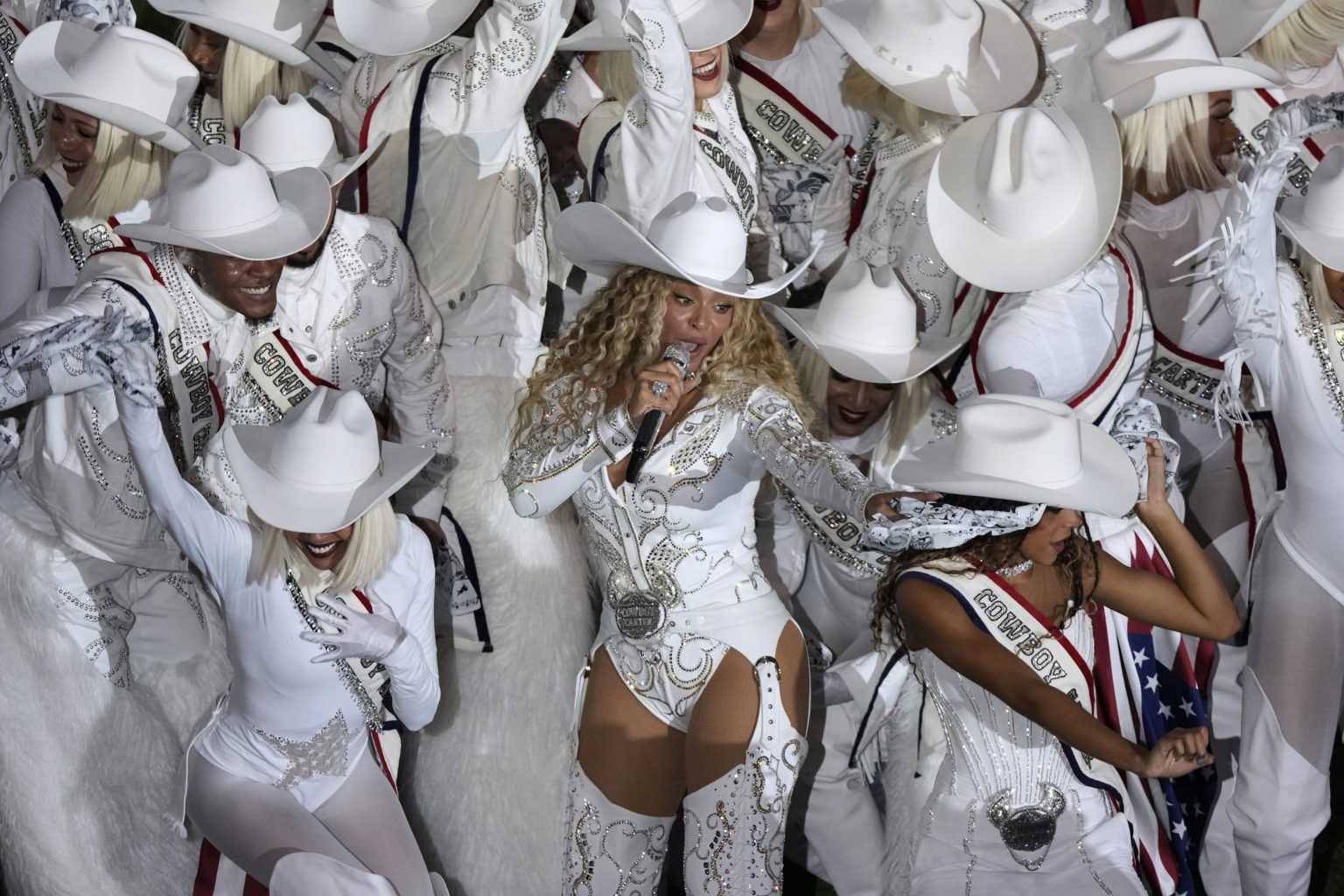Beyoncé’s Christmas Day halftime performance at the NFL game between the Houston Texans and the Baltimore Ravens ignited a firestorm of controversy, highlighting the ongoing culture wars and the evolving landscape of conservative discourse. The performance, her first public showcasing of material from her 2024 album “Cowboy Carter,” drew both enthusiastic applause and sharp criticism, with some conservatives decrying it as “hyper-sexualized” and unsuitable for family viewing. This reaction, however, was not universally shared within conservative circles, as evidenced by Fox News contributor Tomi Lahren’s public rebuke of the “faux outrage” and her acknowledgment of Beyoncé’s undeniable talent. Lahren’s stance underscores a growing rift within conservatism, where some are beginning to question the efficacy and sincerity of perpetually criticizing high-profile entertainers. Beyoncé’s performances, often serving as cultural touchstones, have increasingly become lightning rods for these kinds of debates.
The halftime show itself was a spectacle of Texan-inspired imagery blended with modern pop culture elements. Beyoncé’s grand entrance on horseback set the stage for a performance that featured guest appearances from a diverse range of artists, including Post Malone, up-and-coming country singers Tanner Adell, Tiera Kennedy, Reyna Roberts, and Brittney Spencer, gospel artist Shaboozey, members of the Texas Southern University’s Ocean of Soul Marching Band, and even her own daughter, Blue Ivy. This eclectic mix of musical styles and personalities further amplified the performance’s reach and impact, solidifying its place as a significant cultural event. The performance’s thematic blend of traditional Texan elements and contemporary pop culture created a unique visual and auditory experience, showcasing Beyoncé’s artistic versatility and her ability to bridge diverse cultural influences.
The controversy surrounding the halftime show arrived just months after Beyoncé’s appearance at a Houston rally for then-Vice Presidential candidate Kamala Harris. This earlier event also attracted criticism, notably from then-President-elect Donald Trump, who dismissed the performance as lackluster and unenthusiastic. Trump’s comments, however, contrasted sharply with Beyoncé’s own powerful endorsement of Harris at the rally, where she highlighted the significance of the moment and her personal commitment to supporting the candidate. Beyoncé emphasized her role as a mother deeply concerned about the future and her desire for a world where freedom and unity prevail. The juxtaposition of Trump’s criticism and Beyoncé’s impassioned endorsement further underscored the political and cultural divides that her presence often illuminates.
The divergent reactions to the halftime show played out prominently on social media. Conservative commentator Nick Adams, for example, echoed the sentiment of “hyper-sexualization” and claimed that millions of families had turned off their Netflix subscriptions in protest, a claim that could not be verified. Similar criticisms surfaced from other online personalities, further fueling the debate. This online backlash, however, was countered by Lahren’s defense of Beyoncé, which represented a departure from the typical conservative response. Lahren’s willingness to break ranks and acknowledge Beyoncé’s talent signaled a potential shift in conservative approaches to cultural critiques, raising questions about the future of these often-divisive debates.
Beyoncé’s halftime performance placed her squarely at the intersection of entertainment, politics, and cultural discourse. Her previous appearance at the Harris rally and the subsequent criticisms from Trump had already established her as a figure capable of generating both fervent support and intense opposition. The halftime show, with its blend of Texan aesthetics and modern pop elements, further solidified her role as a cultural icon whose performances transcend mere entertainment and enter the realm of social commentary. This ability to spark dialogue and debate, while sometimes controversial, speaks to Beyoncé’s enduring influence and her capacity to resonate with diverse audiences.
As Beyoncé’s album “Cowboy Carter” continues its trajectory toward commercial success and critical acclaim, it’s highly probable that her future performances will continue to function as cultural flashpoints. Her willingness to engage with social and political themes through her art, combined with her immense popularity, virtually guarantees that her work will remain a subject of both celebration and scrutiny. The contrasting responses to her Christmas Day halftime show offer a glimpse into the complexities of these cultural conversations and the evolving dynamics within conservative thought. The ongoing debate highlights the power of artistic expression to ignite dialogue, challenge norms, and reflect the multifaceted nature of contemporary society. Beyoncé’s continued prominence in the cultural landscape ensures that these conversations will persist, shaping the discourse around art, entertainment, and their intersection with politics and social values.

